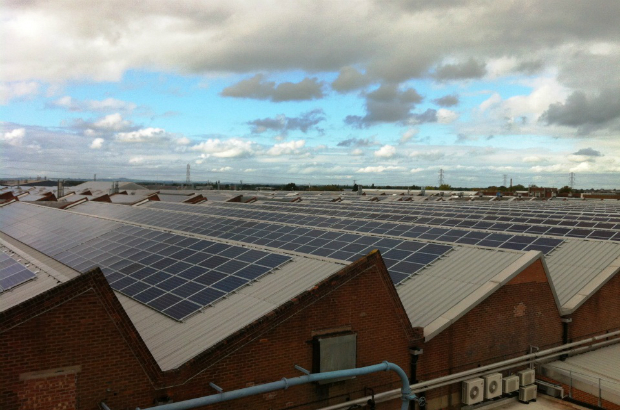
Making the news today are articles about replacing natural gas with hydrogen to heat homes, solar power overtaking coal as a source of UK electricity, and the Committee on Climate Change’s report into the future impacts of climate change.
Cutting emissions cost-effectively is a key priority for government. Decarbonising how we heat our homes and businesses is an essential part of this.
Hydrogen
The Daily Telegraph and The Yorkshire Post look at how a government funded hydrogen project in Scotland could solve "Britain’s reliance on gas". 80% of homes in the UK use natural gas for heating, and the coverage comes from the angle that the UK "has to find a different way of heating homes" if it is to meet climate change targets, before outlining a plan being proposed by Northern Gas Networks in Leeds to examine whether we could replace the natural gas we use with hydrogen, which produces no carbon emissions.
Our view
Cutting emissions cost-effectively is a key priority for government. Decarbonising how we heat our homes and businesses is an essential part of this. There are several technologies with great potential to deliver the transformation necessary to meet 2050 targets – including heat networks, heat pumps, hydrogen and biogas. It is not yet clear which will work at scale and keep costs down. Different approaches need to be tested as we develop a long-term plan that delivers the best solution for consumers.
Solar
The Times and Business Green report that solar panels in Britain generated nearly twice as much electricity than coal during May, stating that coal generation has plummeted since "the government announced the closures as part of its commitment to tackling climate change". The Times article states that there "are concerns about potential shortfall of supplies because renewables are less reliable".
Our view
The growth of solar is a brilliant success story for our renewables industry and is playing an increasingly important role in our low carbon energy mix. We are the first country to propose an end date for all unabated coal-fired power stations as part of our plans for a cleaner energy future. We are confident that this will not compromise our ability to keep the lights on in any way.
Climate Change
The Committee on Climate Change report into the future impacts of climate change is covered by a range of media outlets today. Coverage focuses on the CCC’s conclusion that the UK is "poorly prepared for the inevitable impacts of global warming in the coming decades", highlighting that widespread flooding and new diseases are among the risks in most urgent need of addressing. The Times looks at changes required to building regulations to address the issue, while other reports focus on how climate change will affect farming.
Our view
Government is committed to making sure the UK is prepared for the challenges of climate change. That is why we are investing record amounts in flood defences, developing a long-term plan for the environment and reviewing planning legislation so new construction projects are sustainable and resilient. We continue to work closely with more than 250 organisations spanning central government, businesses, councils and academia in taking action to adapt to the effects of climate change.